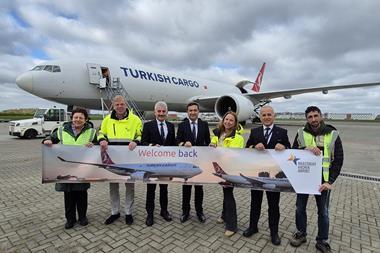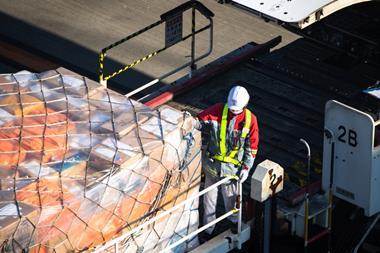Liege Airport has seen its cargo volumes bounce back in the first two months of the year following a double-digit percentage decline in 2023.
The Belgian freighter hub registered a 13% year-on-year increase in cargo volumes over the first two months to 175,593 tonnes while the number of flights improved by 15% to 4,147 movements.
This follows an 11.8% decline in cargo volumes last year due to weak economic conditions and the restructuring of FedEx’s network with flights switching from Belgium to Paris. It also lost AirBridgeCargo due to restrictions following the outbreak of the Russia-Ukraine war in the first quarter of 2022.
The airport said that the increase in demand reflected improving market conditions over the first two months of the year.
Laurent Jossart, chief executive of Liege Airport, said: "Despite the significant reduction in FedEx activities in 2022 following its partial departure for Paris Charles de Gaulle, despite the loss of the Russian cargo company AirbridgeCargo, and despite difficult market conditions, Liege Airport is demonstrating its resilience.
"Thanks to a well-diversified portfolio of air and logistics operators, we have overcome all these difficulties, and are on the road to significant growth in the coming years."
More than 40 cargo airlines now operate regularly at Liege airport and the main customer represents no more than 15% of total volumes handled at the airport.
Five new airlines have joined since the beginning of 2024: Compass Cargo Airlines, My Freighter, Hong Kong Air CargoCarrier, Turkish Cargo, Egyptair Cargo.
Challenge Airlines is also expanding its fleet with additional freighters and extending its network with new connections to India and China.
"Finally, in recent days, FedEx has confirmed its ambitions at Liege Airport by basing its intercontinental European air freight hub here and has increased its daytime flights to/from the US with modern 777Fs," the airport added.
The airport is also pushing the use of quieter aircraft and daytime flying as it responds to pollution/sustainability concerns.
It said that in 2021 52% of its flights were in the night. This was down to 33% last year largely as a result of FedEx moving its flights.
The airport has changed its pricing policy to encourage daytime flights and to give airlines financial incentives to fly aircraft with the best acoustic performance.
"The B747-200 and 400 have been reduced from 1047 movements (January/February 2023) to 946 movements (January/February 2024), a reduction of 10%, and more than 72% of these movements are now carried out during the day. This is also in line with the new operating permit, which will prohibit these aircraft from taking off at night from 2030 onwards," concluded Jossart.














